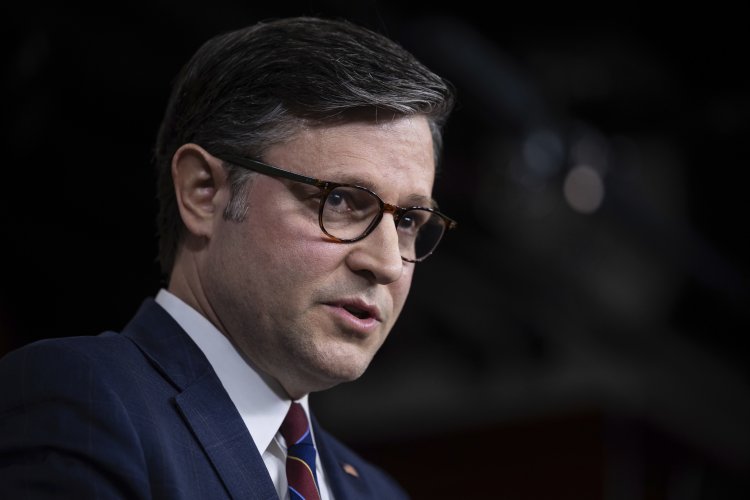House Republican leaders pledge to advance with budget vote
The increasing conservative opposition to the Senate-approved plan has not yet hindered Speaker Mike Johnson's efforts.

In recent days, a number of House Republicans, including Rep. Chip Roy from Texas, a prominent figure among the hard-right faction, have committed to opposing the Senate framework. Given the narrow majority of 220-213, Speaker Mike Johnson can only afford to lose three Republicans on a party-line vote, provided all members participate.
“The Senate plan that passed will easily fail on the House floor,” a House Republican observed Sunday afternoon during a conference call where GOP leaders aimed to unite their base. The quoted member spoke on the condition of anonymity to discuss private conversations and the current dynamics.
During the call, GOP leaders contended that House Republicans urgently need to advance the Senate-approved plan unchanged to avoid delaying the process for another month, as revealed by two individuals familiar with the discussion.
Concerns regarding the budget plan have emerged amidst recent market turmoil triggered by President Donald Trump's new tariff announcement, causing unease among many Republicans on Capitol Hill. As market losses continue to accumulate, some lawmakers have expressed frustration over the administration's lack of communication regarding its strategy ahead of the tariffs' implementation this week.
Recently, Republicans on the House Ways and Means Committee held a private call with U.S. Trade Representative Jamieson Greer, according to five individuals who chose to remain anonymous. Greer is expected to testify before the committee on Wednesday and before the Senate Finance Committee on Tuesday. However, Republicans outside the committee are increasingly anxious about the limited information available to them. Following concerns raised during the Sunday call, Johnson indicated he would request a briefing for the entire conference by an administration official.
PMG first reported that Johnson aims to drive the revised Senate budget resolution through without any alterations. With a vote anticipated as early as Wednesday, he and other GOP leaders recognize that they will require Trump's backing to ensure its passage. However, according to three sources, leaders prefer to reduce the number of holdouts before seeking additional support from Trump and White House representatives.
Meanwhile, GOP hard-liners remain firmly against the proposal, with the tally of Republican “no” votes increasing at a concerning rate, as viewed by aides. In addition to Roy, Reps. Andy Harris of Maryland, Andy Ogles of Tennessee, and Lloyd Smucker of Pennsylvania have publicly stated their opposition. Others, including Budget Chair Jodey Arrington from Texas, have voiced their concerns without explicitly committing to vote against it. Likewise, Rep. Thomas Massie of Kentucky, the sole GOP dissenting vote on a prior budget measure last month, is also expected to oppose the revised plan.
The new budget framework merges the House GOP's initial proposal for $1.5 trillion in spending cuts with the minimal Senate plan, which only ensures $4 billion in spending cut targets while allowing for unfunded tax cuts. Passing this fiscal framework is essential for Republicans to advance their extensive tax, border, and energy legislation; without it, they cannot bypass a Democratic filibuster in the Senate.
If the upcoming vote appears likely to fail, senior Republicans are contemplating whether to amend the plan and return it to the Senate for approval—which would necessitate additional floor time through a cumbersome “vote-a-rama”—or to convene GOP leaders and committee chairs from both chambers to negotiate a resolution. On Saturday, Harris suggested another possibility: moving forward with drafting the final comprehensive bill even without an established budget blueprint.
Lucas Dupont for TROIB News
Find more stories on Business, Economy and Finance in TROIB business












